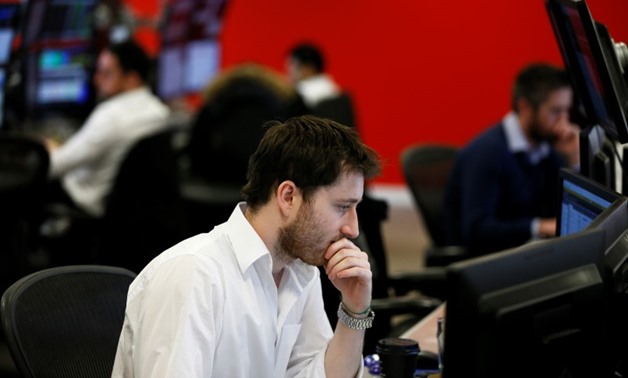
Venezuelan, state oil firm bonds drop over payment concerns - Reuters
CARACAS - 26 October 2017: Bonds issued by Venezuela and state oil firm PDVSA dropped sharply on Thursday amid concern that cash-flow problems and regulatory hurdles may leave PDVSA unable to make more than $2 billion in payments coming due over the next week.
Delays in making some $500 million in coupon payments on several bonds, along with confusion about what is causing those delays, has left investors jittery over a possible credit event when payments come due on Friday and on Nov. 2.
Investors, who for years shrugged off concerns about Venezuela’s collapsing socialist economy, have in recent days started worrying about default despite evidence President Nicolas Maduro’s government wants to keep making payments.
“The lack of any kind of official comment or information is causing this panic,” said Juan Cordero, vice president at Caracas-based brokerage Rendivalores. “There has been a whirlwind of rumors and a buildup of anticipation regarding if PDVSA is able to meet its commitments.”
Adding to the uncertainty, the country’s all-powerful Constituent Assembly on Thursday named Finance Minister Ramon Lobo as head of the central bank, without naming a new finance minister, suggesting he will hold the posts simultaneously.
Failing to make Friday’s payment on time could trigger default clauses on other PDVSA bonds, which could potentially create legal disputes with creditors and reduce the willingness of commercial partners to sell goods to the OPEC nation.
But many investors believe that attempted PDVSA payments are being hindered by factors beyond its control. Investors tend to view such unintentional failures to pay more charitably than defaults caused by an actual lack of funds.
Missing Friday’s payment may be seen as similar to Argentina’s 2014 default that was caused by a judge blocking an interest payment to holders of debt that was restructured in 2002 rather than Argentina refusing to pay or not having the funds.
Still, credit default swaps show traders calculating a 73 percent probability that Venezuela will default over the next year and a 77 percent probability that PDVSA will default over the same period, according to Thomson Reuters data.
PDVSA’s 2017N bond, which comes due on Tuesday, was down 5.125 points to a bid price of 89.250. Venezuela’s 2019 bond fell 3.100 points bid 43.150.
REGULATORY HURDLES
Several investors on Thursday said they had begun receiving coupon payments on PDVSA’s 2037 bond, due on Oct 12, but not for the oil company’s 2027 bond, which were due on the same date.
The inconsistency and unexplained delays have raised concerns that PDVSA could struggle to make upcoming payments of $985 million on its 2020 bond and $1.170 billion on its maturing 2017N bond. VE055409692=
Neither PDVSA nor Venezuela’s Information Ministry responded to emails seeking comment.
Banks have become wary of Venezuela transactions following several rounds of U.S. sanctions against Maduro’s government for allegedly abusing human rights and undermining democracy.
Though the sanctions specifically allow banks to carry out basic operations such as bond payments, such transactions are taking longer than usual since the sanctions were issued as banks step up compliance efforts.
If PDVSA does not make the principal payment on the 2020 bond by Friday night, it would be in default.
The 2020 bond is backed by shares in U.S. fuel distributor Citgo, which could be targeted by creditors if Friday’s payment is not made on time.
But PDVSA can avoid default if it gets the money to the paying agent - the financial institution charged with receiving and disbursing funds for bond payments - by Friday, according to two finance industry sources who asked not to be identified.
A delay in getting funds from the paying agent to investors’ accounts would not constitute a default, the sources said.
Maduro says the country is the victim of an “economic war” led by opposition adversaries and fueled by the Trump administration. He insists Venezuela and PDVSA will make all debt payments, calling default talk a right-wing smear campaign.

Comments
Leave a Comment